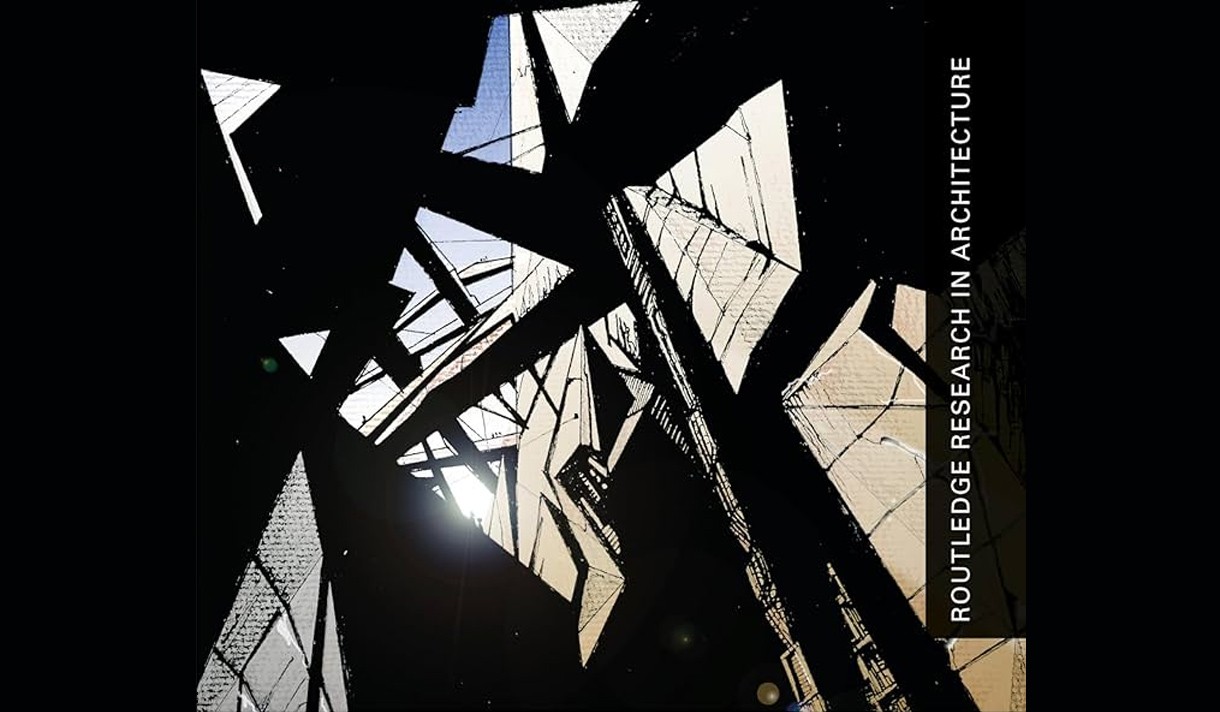Event
April 25, 2024
5:30 PM – 7:00 PM
1855 Broadway, 11th-floor Gallery and Online
Join us for the premiere event and lecture celebrating the launch of "Architectural Exaptation: When Function Follows Form," authored by Alessandro Melis, Telmo Pievani, and Jose Antonio Lara-Hernandez (Routledge, 2024).
The book investigates the significance and originality of studying exaptation as a means to expand the taxonomy of architectural design towards more ecological positions. In the context of ecological positions, the book aims to reframe creativity, especially in architecture, as an integral part of biological evolution rather than a mere departure from it, challenging the traditional Promethean notion of creation ex nihilo. This perspective opens up a pivotal opportunity to rethink our methods of urban planning and architectural design through the concept of exaptation. This term was first introduced by Stephen Jay Gould and Elizabeth Vrba in their influential paper, "Exaptation—A Missing Term in the Science of Form," published in 1982. Their pioneering work has established a foundational understanding of how traits that evolved for one function can be repurposed with new functionalities, a principle this book “exapts” for architectural innovation and ecological sustainability. The book argues that exploring the concepts of exaptation in architecture reinforces the value of interdisciplinary studies bridging evolutionary biology, paleoanthropology, genetics, and architecture, particularly in times of global environmental crises.
Exaptation refers to the functional shift of a structure that previously served a different "purpose" (that is, a trait related to a selective pressure) or no function at all (for example, as a side effect of other processes). In the realm of evolutionary biology, exaptation has made it possible to broaden the Darwinian approach to the processes of change, overcoming the antiquated adaptationist and functionalist vision that had dominated for part of the twentieth century. The basic idea is that natural selection and other evolutionary factors do not work from zero but continuously tinker with the already existing material, re-functionalizing it and transforming constraints into opportunities. In the realm of architecture, this functional shift can apply to tectonic elements, alterations in the use of architectural space, as well as decorative elements integrated into architectural components. By doing so, the book challenges conventional definitions of terms such as function, use, decoration, creativity, and intentionality.
Throughout its chapters, the book presents case studies from various civilizations and historical periods worldwide, spanning from urban to architectural scales, in permanent parallelism with evolutionary biology. The text also highlights that during crises, the characteristics of exaptive structures—variability, redundancy, and diversity—serve as essential reserves of potential, complementing the ethical stance against outdated societal classifications. A relevant literature review will describe how human intelligence itself is exaptive because it is based on cerebral plasticity and on the evolutionary reuse of structures that have emerged in relation to functions that are different from those they perform now.
Learn more about the Future by Design lecture series.
Moderation
Athina Papadopolou
Assistant Professor, New York Tech School of Architecture and Design
Speakers

Alessandro Melis
IDC Foundation Endowed Chair; Professor, Director, M.S. Programs (M.S. Act)
Alessandro Melis is the inaugural IDC Foundation Endowed Chair and a professor in the School of Architecture and Design. In 2021, he was the curator of the Italian Pavilion at La Biennale di Venezia. Alessandro has been nominated Ambassador of Italian Design (ADI - Italian Ministry of External Affairs) in 2021 (Paris) and 2022 (New York and Washington). Previously, he was director of the International Cluster for Sustainable Cities at the University of Portsmouth, director of Postgraduate Engagement at the University of Auckland, co-director at the TPAI program at the University of Applied Arts Vienna, visting professor at the Anhalt University Dessau, Politecnico di Torino, University of Perugia, and honorary fellow at Edinburgh University.
Full Bio »

J. Antonio Lara-Hernandez
Postdoctoral Research Fellow, AUT: Auckland Institute of Technology
J. Antonio Lara-Hernandez is an architect and urban researcher with more than 15 years of experience. He was a distinguished member of the curatorial team of the Italian Pavilion at the Venice Biennale 2021. His research and professional experience include works in Mexico, Italy, Switzerland, New Zealand, and the United Kingdom.
Learn More
